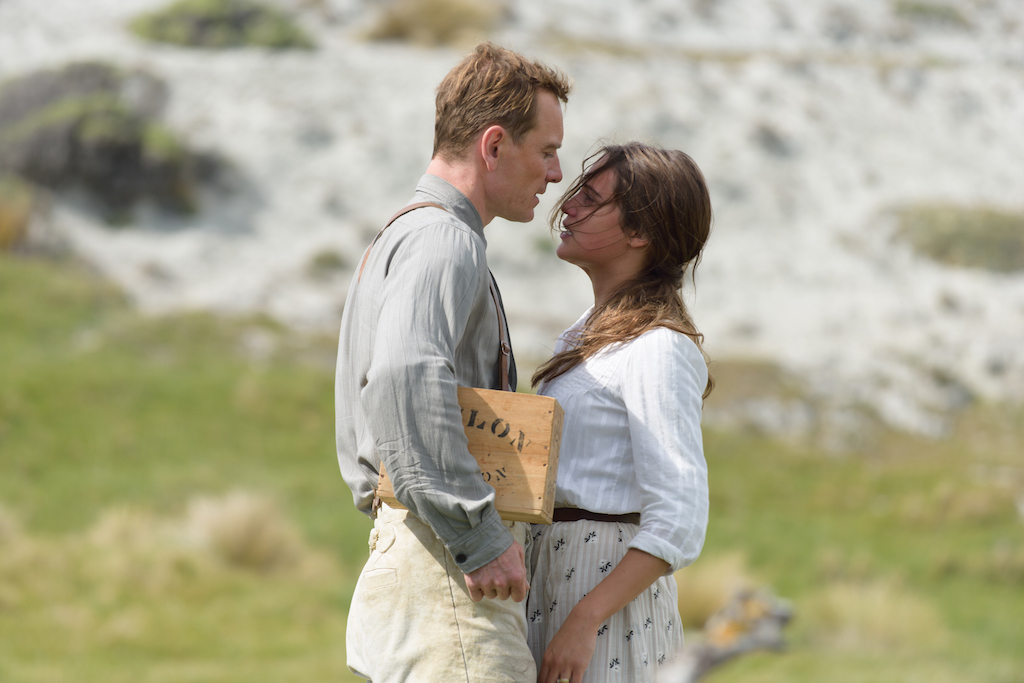
When I first saw the trailer for The Light Between Oceans, which stars Michael Fassbender and Alicia Vikander as a couple who find a baby that has washed ashore, I remarked to a friend, “This looks like an A-list Nicholas Sparks movie.”
I’m guessing that director Derek Cianfrance had the same concerns, which might explain the film’s subdued, even somber tone in the early goings, as we first meet our (bland) characters and they fall (unconvincingly) in love. Rarely have I been so uninvested in an onscreen love story.
Fassbender plays Tom Sherbourne, who has just come home to Australia after World War I and is haunted by the things he has seen and done. Craving isolation, or perhaps to punish himself for his perceived sins, he agrees to a post as a light keeper. On the mainland, he meets Isabel Graysmark (Vikander), the daughter of a prominent family in town, and they share a picnic lunch and promise to exchange letters. Then, they …fall in love? I guess?
Whatever the case, Isabel agrees to marry Tom and live with him on his one-man island. Isabel is lively and joyful, of course, and slowly rouses Tom from his depression. (My kingdom for a movie about a woman slowly roused from her depression by a beautiful male life force.) The two of them can’t wait to start a family, but their dreams are dashed when Isabel miscarries twice. (By the way, if you have any sensitivity about that subject you might want to steer clear—both miscarriages are depicted, rather graphically.) Now it is Isabel who retreats inward.
Already, the roles have been established here: Isabel, ardent, headstrong, desperate for a child; Tom, solid, law-abiding, but desperate to please his wife. They raise Lucy and we get a montage of beach frolicking and birthday parties to prove how happy they are—also to prove that babies in fisherman sweaters are adorable as hell— but everything changes when they bring Lucy to the mainland to be christened. It’s there that Tom spies a woman named Hannah (Rachel Weisz) who turns out to be the wife of the dead man in the boat and the baby’s real mother. Consumed by guilt, Tom leaves Hannah a note assuring her that her baby is alive and well cared for. He doesn’t tell Isabel what he knows.
The film is set up as a moral dilemma: Should Tom tell Hannah, or not? But to me, this is already the wrong question. This is a decision that Isabel and Tom should make together. There’s a strange whiff of patriarchy to all of this—even more so as the film goes on—particularly surprising since M.L. Stedman, who wrote the much-loved novel on which the film is based, is a woman.
As for the actors, like their director, they seem torn between giving subdued “prestige-film” performances and just letting it rip. It doesn’t help that most everyone is the wrong age: Fassbender is 39 in real life. Rachel Weisz is 46! (I kept waiting for the film to explain that Hannah, too, had suffered several miscarriages and therefore this baby was her last biological hope, but no such luck.) The baby is played by an unusually short 25-year-old. (I kid, I kid… actually, Florence Clery, the child who plays Lucy as a toddler, is crazily cute.)
In the end, I think this film would’ve worked better with B-list actors (Grant Gustin and Melissa Benoist, anyone?) and a director who fully embraced the melodrama. As it is, The Light Between Oceans feels like a film between genres.
*An earlier version of this story misidentified the name of the baby.
